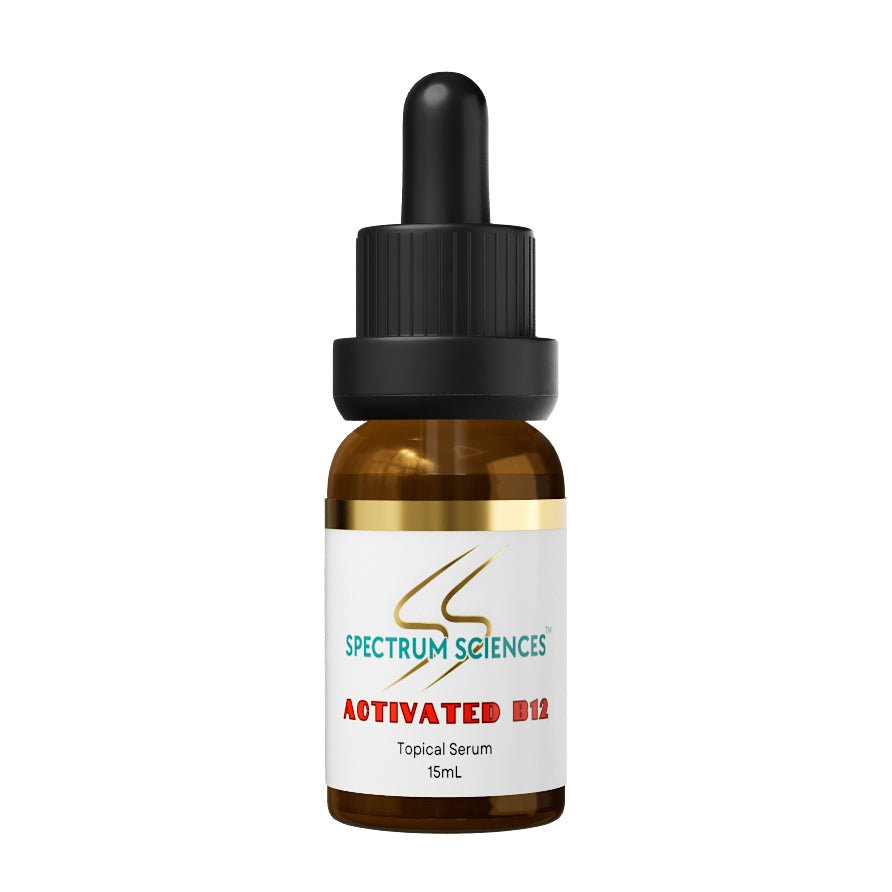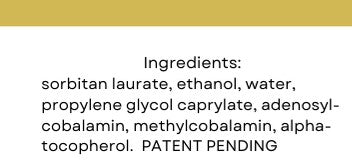Scientists Discover Anti-Dementia Factor

Globally, the rate of Alzheimer's disease and other dementias increased to nearly 2.5 times from the prevalence in 1990 to that of 2019 (Li X, et al, 2022). Since then, we have experienced the COVID pandemic and destructive government mandates, resulting in new data that has not had enough time to be published. The preliminary data suggests this problem is now growing at an alarming rate.
In fact, two reports published within the last year both predict that the dementia rate will more than double by 2060 based on current projections (AD, 2024) (Fang, et al, 2025).
But seniors are not the only demographic at high risk. The global prevalence of dementia among individuals under 70 also increased significantly, growing 2.28 times the level from 1990 to 2021 (Li Z, et al, 2024). We are clearly in the midst of a looming crisis.

If you have ever witnessed someone you love slip away into dementia, or God forbid, ever had to say the "long goodbye" to a loved one, you know how much of a burden this disease is.
There are many early warning signs of dementia onset. Some of the more prominent symptoms include:
- Memory loss
- Difficulty performing familiar tasks
- Trouble with planning, organizing, or solving problems
- Confusion about time or place
- Problems with language
- Changes in mood, personality, or behavior
- Poor judgment or decision-making
- Difficulty with visual and spatial abilities
- Loss of initiative or motivation
- Repetitive behaviors, such as asking the same questions or telling the same stories

And researchers have discovered one factor that strongly correlates with dementia risk.
Vitamin B12 Deficiency Predicts Cognitive Decline
A multicenter study of 202 patients with early warning signs of cognitive impairment found that elevated homocysteine levels (a B12 deficiency marker) were linked to neuronal damage and dementia risk (Jatoi, et al, 2020).
The study also showed that patients with serum B12 levels <100 pg/mL (severe deficiency) showed limited improvement, suggesting chronic deficiency may cause irreversible neurological damage.
However, in those who were treated with vitamin B12 injections found that 84% reported symptomatic improvement in memory and focus, while 78% showed improved Mini-Mental State Examination scores.
"Normal" B12 Levels May Be Insufficient for Brain Health
More doctors are beginning to routinely screen their patients for adequate levels of vitamin B12. However, the reference ranges used by the laboratories and interpreted by doctors are calculated based on the general population, and many of those individuals are deficient. This taints the reference range to make the patient's levels appear more adequate than they really are.
An analogy that most people understand is that lab reference ranges based on the general population can be a bit like figuring out the average weight at a Weight Watchers meeting and assuming that is the population average. Using the Weight Watchers data, a person who weighs 245 pounds might be led to believe they are in the middle of the range and have no need to lose weight.

Dementia researchers are beginning to call for revisions in the vitamin B12 reference ranges based on a similar concept.
A UCSF study of 231 older adults (mean age 71) found that vitamin B12 blood levels on the lower half of the reference range, but still considered "normal", correlated with three significant indicators of cognitive decline (Koralnik, et al, 2020). These indicators include:
- Slower cognitive processing speeds
- Brain lesions linked to cognitive decline
- Higher blood levels of T-Tau protein, a neurodegeneration biomarker
Because of these findings, researchers argue that current B12 thresholds (≥148 pmol/L) may need revision, as subtle deficits persist even at "sufficient" levels. The longer these subtle deficits persist, the further the cognitive decline may progress, and the patient's condition becomes more difficult to manage.
Evidence of B12’s Protective Role
A 2010 study suggested that vitamin B12 may reduce Alzheimer’s risk by lowering homocysteine (Hooshmand, et al, 2010).
Researchers have proposed that vitamin B12 deficiency may result in cognitive decline from two related mechanisms. The key mechanisms proposed include:
- Homocysteine Toxicity: Elevated homocysteine, which results from B12 deficiency, damages neurons and blood vessels, accelerating cognitive decline.
- Impaired Myelination: B12 is critical for nerve insulation (myelin), and deficiency disrupts brain signal transmission.
Clinical Implications
 Screening for B12 deficiency, even in asymptomatic older adults, may help mitigate dementia risk. B12 replacement therapy (e.g., intramuscular injections) improves outcomes in deficient patients, particularly when initiated early.
Screening for B12 deficiency, even in asymptomatic older adults, may help mitigate dementia risk. B12 replacement therapy (e.g., intramuscular injections) improves outcomes in deficient patients, particularly when initiated early.
However, many doctors are still reluctant to order blood tests for items that are considered "alternative" medicine.
Furthermore, if you convince your doctor to run the test, and it shows low levels of vitamin B12, many doctors still erroneously believe that a it can be fixed easily by taking a pill that contains some vitamin B12.
If this were true, vitamin B12 deficiency wouldn't be a worldwide problem. The average US diet provides a daily intake of between 3.66 - 5.84 micrograms of vitamin B12, which is well above the 2.4 micrograms recommended by the NIH.
Clearly, there is a bigger problem than what a poorly-absorbed capsule or even a carnivorous diet can solve.
In B12 replacement therapy, it is common for doctors to prescribe 1000 mcg by injection every month to maintain adequate blood levels in their patients. That amounts to about 12 times the monthly RDA - by injection! This is in addition to the amount the patient receives through their diet.
The reason injections are much more effective than capsules, in addition to the massive dose they supply, is due to the fact that oral administration of vitamin B12 is poorly absorbed.
We wish it were as simple as taking a daily capsule of vitamin B12 to replete the brain of this vital nutrient, but unfortunately, that is not the case. Most of the vitamin B12 contained in capsules simply ends up in the toilet.

Vitamin B12 absorption in the GI tract is facilitated by a protein known as intrinsic factor, which acts as a shuttle from the gut to systemic circulation. It has been shown that oral absorption is limited to about 10 micrograms per feeding, far short of the dosages used in any of the replacement therapy protocols used by these teams of researchers.
In addition to the absorption problem, scientists also believe that there is significant benefit to sustained release of vitamin B12 into systemic circulation, which maintains elevated blood levels and optimizes intracellular absorption.
This is a big reason why most doctors who prescribe vitamin B12 replacement therapy for their patients initially prescribe smaller injection doses (~100 micrograms) on a daily basis for the first 1-2 weeks, followed by a gradual taper to monthly injections.
Continuing with daily injections would provide a greater benefit, but this comes at the risk of poor patient compliance. The compromise is that doctors start their patient on a frequent injection regiment, but switch to less frequent injections so they continue to retain some of the benefits.
But what if a person could enjoy the convenience of a daily, at-home supplement, and the power of a daily high-dose injection?
To meet these criteria, we have developed cutting-edge microemulsion transdermal technology, vastly improving vitamin B12 absorption compared to oral capsules and powders, allowing for an at-home option that provides doses used in a clinical setting.

This method also provides the benefits of slow release into systemic circulation, mimicking the results of daily injections without the hassle of prescriptions, needles, and insurance claim denials. If you have ever had an insurance claim denied and been forced to pay the invoice, you would be blown away by what they get away with charging their policy holders!
Preventing the dementia epidemic that researchers are predicting to happen by 2060 could be as simple as repleting vitamin B12 levels in susceptible individuals. Spectrum Sciences is offering a pound of prevention at the cost of a half ounce bottle.
And for being an Epoch Times reader, you have an opportunity to save 15% off your entire order when you use the code EPOCH15.
Spectrum Sciences B12 Protocol capitalizes on the features that researchers have used to reverse dementia symptoms in their subjects, inspired by best practices in medicine.
Now, with this technology available over the counter, preventing and reversing symptoms of dementia are more convenient and affordable than ever.
One of our customers had this to say about our Activated B12 Oil:
"I am EXTREMELY pleased with the results of my CBC. Red blood cell size (MCV) has NEVER been in range in my LONG LIFE! Thank you!"
This customer helped her son reverse a long-standing B12 deficiency:
"After 10 consecutive years of having elevated MMA (severe B12 deficiency), he received a within range MMA result today!!! We've been doing the protocol for a few months and it is working. (We've been working on it for years doing other things that never worked). There is hope to turn things around, for sure! I switched to Spectrum Sciences oil and it's been life changing for my son!"
We followed up with her several weeks later to make sure it wasn't just a temporary benefit she was seeing. This is what she had to say:
"He's been feeling better and better each week. I'm so excited for him. His mood has improved dramatically and also his levels of energy. He's so much more talkative too...no more brain fog, better immune system, and last but not least his better ability to cope in stressful situations...I truly wish this for all kids and adults that struggle with B12 deficiency. The oils were truly the missing piece for him."

Do you have a loved one who is becoming increasingly irritable? Perhaps you are noticing your vitality isn't quite what it used to be.
We are getting reports from all around the world of improved mental faculties like the customer testimonials mentioned above. Lab results are changing for the first time in their lives.
It's because our Activated B12 Oil works. This patent-pending technology makes B12 replacement therapy simple, effective, and affordable.
Just apply 8 drops to the skin, rub it in, and let it go to work. And for being an Epoch Times reader, you can save 15% off your entire order by using the code EPOCH15 at checkout.

Oral capsules and drink mixes simply do not work - that is why our product features patent pending microemulsion transdermal technology. While oral absorption is adequate for maintaining nutritional status of an otherwise healthy individual, it cannot supply the high doses or sustained release required for therapeutic benefits. With Activated B12 Oil, you can experience the full power of this life-changing therapy.
Vitamin B12 is the anti-dementia factor that scientists predict can put a halt to the epidemic looming by 2060. If you are like most, becoming part of that statistic is not on your bucket list.
Give your mental faculties some powerful nourishment and save on our Activated B12 Oil today - only $29.75 with code EPOCH15 at checkout!
Spectrum Sciences
Activated B12 Oil
Share



Proudly Made in the USA
Spectrum Sciences is committed to bringing the very best vitamin B12 supplement to the world. Our founder credits his son's recovery from autism to the power of B12 therapy. He formed this company out of heartfelt inspiration to bring healing to the individuals and families who desperately need it. Leveraging his credentials as a chemist, certified health coach, and most importantly as a father of a child whose early life was characterized by struggle but who now thrives, Spectrum Sciences was born. Testimonials are from real customers of Spectrum Sciences Activated B12 Oil. We look forward to hearing about your success story as well!
References
Boche M, Pokharkar V. (2020). Microemulsion assisted transdermal
delivery of a hydrophilic anti-osteoporotic drug: Formulation, in vivo
pharmacokinetic studies, in vitro cell osteogenic activity. Journal of
Applied Pharmaceutical Science, 10(08):008-019.
Boche M, Pokharkar V. (2020). Evaluating two nanocarrier systems
for the transdermal delivery of sodium alendronate: Microemulsions and
solid-in-oil nanosuspensions. International Journal of Pharmaceutics.
Yadav K, Soni G, Chaudhary D, Khanduri A, Bhandari A, Joshi G.
(2023). Microemulsions for Enhancing Drug Delivery of Hydrophilic Drugs:
Exploring Various Routes of Administration. Medicine in Drug Discovery,
18:100162.
Leporatti S, et al. (2023). Exploring the Versatility of Microemulsions in Cutaneous Drug Delivery. Pharmaceutics, 15(5): 1292.
A Review on Microemulsion for Drug Delivery System. (2023). World Journal of Pharmaceutical and Medical Research, 9(5): 109-117.
Kumar S, et al. (2024). Strategies to Improve the Transdermal
Delivery of Poorly Water-Soluble NSAIDs. Pharmaceuticals, 17(5): 512.
Transdermal Drug Delivery System: A Comprehensive Review of
Strategies, Regulatory Requirements, and Recent Advances. (2025).
Journal of Drug Delivery Science and Technology, 85:104227.
Bae, CY., Piao, M., Kim, M. et al. Biological age and lifestyle in the diagnosis of metabolic syndrome: the NHIS health screening data, 2014–2015. Sci Rep 11, 444 (2021). https://doi.org/10.1038/s41598-020-79256-4
Hooshmand B, Refsum H, Smith AD, et al. Association of Methionine to Homocysteine Status With Brain Magnetic Resonance Imaging Measures and Risk of Dementia. JAMA Psychiatry. 2019;76(11):1198–1205. doi:10.1001/jamapsychiatry.2019.1694
James SJ, Cutler P, Melnyk S, Jernigan S, Janak L, Gaylor DW, Neubrander JA. Metabolic biomarkers of increased oxidative stress and impaired methylation capacity in children with autism. Am J Clin Nutr. 2004 Dec;80(6):1611-7. doi: 10.1093/ajcn/80.6.1611. PMID: 15585776.
Rossignol DA, Frye RE. The Effectiveness of Cobalamin (B12) Treatment for Autism Spectrum Disorder: A Systematic Review and Meta-Analysis. J Pers Med. 2021 Aug 11;11(8):784. doi: 10.3390/jpm11080784. PMID: 34442428; PMCID: PMC8400809.
Zhang Y, Hodgson NW, Trivedi MS, Abdolmaleky HM, Fournier M, Cuenod M, Do KQ, Deth RC. Decreased Brain Levels of Vitamin B12 in Aging, Autism and Schizophrenia. PLoS One. 2016 Jan 22;11(1):e0146797. doi: 10.1371/journal.pone.0146797. PMID: 26799654; PMCID: PMC4723262.
Li X, Feng X, Sun X, Hou N, Han F and Liu Y (2022) Global, regional, and national burden of Alzheimer's disease and other dementias, 1990–2019. Front. Aging Neurosci. 14:937486. doi: 10.3389/fnagi.2022.937486
Fang, M., Hu, J., Weiss, J. et al. Lifetime risk and projected burden of dementia. Nat Med 31, 772–776 (2025). https://doi.org/10.1038/s41591-024-03340-9
Li Z, Yang Y, Liu Y, Wang X, Ping F, Xu L, Zhang H, Li W, Li Y. Global burden of dementia in younger people: an analysis of data from the 2021 Global Burden of Disease Study. EClinicalMedicine. 2024 Oct 3;77:102868. doi: 10.1016/j.eclinm.2024.102868. PMID: 39416391; PMCID: PMC11474392.
Jatoi S, Hafeez A, Riaz SU, Ali A, Ghauri MI, Zehra M. Low Vitamin B12 Levels: An Underestimated Cause Of Minimal Cognitive Impairment And Dementia. Cureus. 2020 Feb 13;12(2):e6976. doi: 10.7759/cureus.6976. PMID: 32206454; PMCID: PMC7077099.
Koralnik, Igor J., and Kenneth L. Tyler. "COVID‐19: A Global Threat to the Nervous System." Annals of Neurology, vol. 88, no. 1, 2020, pp. 1–11. Wiley Online Library, https://doi.org/10.1002/ana.27200.
Hooshmand, Babak, et al. "Homocysteine and holotranscobalamin and the risk of Alzheimer disease: a longitudinal study." Neurology, vol. 75, no. 16, 2010, pp. 1408-1414. American Academy of Neurology, https://doi.org/10.1212/WNL.0b013e3181f88162.
AD. 2024 Alzheimer's disease facts and figures. Alzheimers Dement. 2024 May;20(5):3708-3821. doi: 10.1002/alz.13809. Epub 2024 Apr 30. PMID: 38689398; PMCID: PMC11095490.

